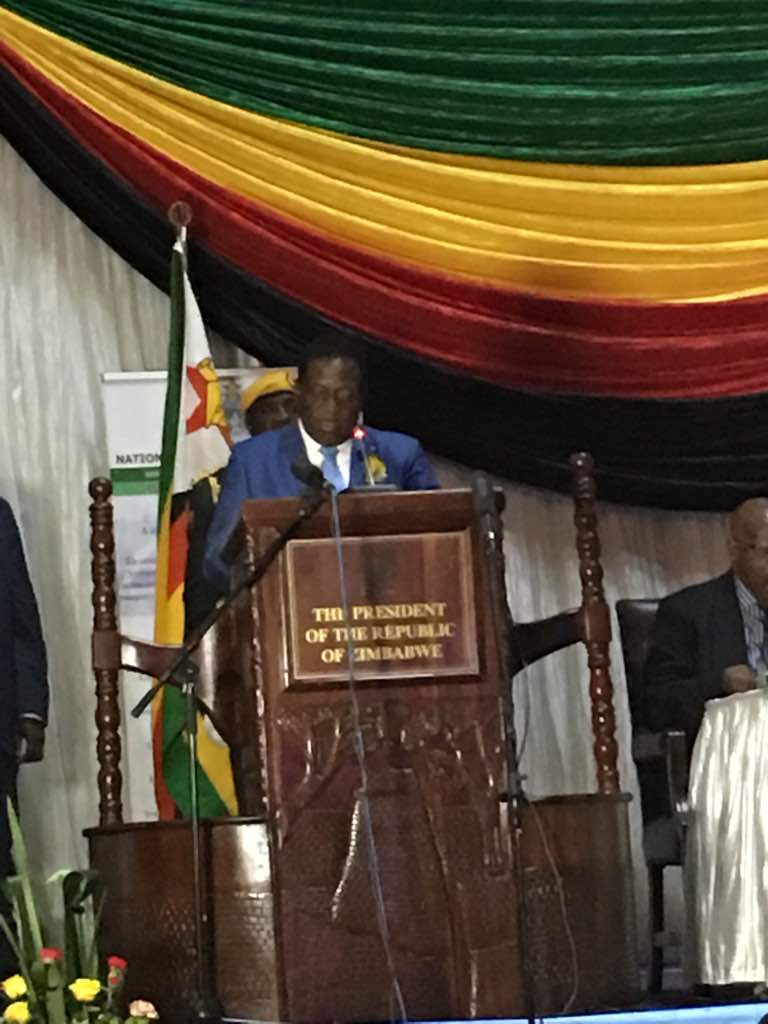By Byron Mutingwende
Improving water resources infrastructure and availability has the potential to unlock the vast opportunities for Zimbabwe’s socio-economic development, President Emmerson Mnangagwa has said.
He made the remarks on the occasion of the water infrastructure investment conference and the launch of the national climate policy at the Harare International Conference Centre on 4 June 2018.
“My Government is cognisant of the nexus between water availability and the upholding of human dignity, poverty eradication, good health, climate change and sustainable communities. This cardinal principle is further underscored by the urgent and compelling need for mitigation and adaptation initiatives to address the effects of the global climate change phenomenon that has not spared Zimbabwe.
“My Government is resolute in its commitment to improve the country’s water resources infrastructure that we believe has the latent potential to unlock the vast opportunities for Zimbabwe’s economic development,” President Mnangagwa said.
In order to ensure universal access to water, the President said it was important to accelerate the completion of the Gwayi-Tshangani Dam in Matebeleland North and Marovanyati Dam in Manicaland. In 2016, Zimbabwe joined other UN Member States in committing itself to ensuring universal access to water and sanitation as espoused in Goal 6 (SDG6) of the 2030 Agenda for Sustainable Development. Zimbabwe ranks the second country with most dams in Africa after South Africa, with 10 000 large, medium and small dams.
The conference was organised by the ministry of environment, water and climate in order to reach out to the world to join the government in water development. At the same time, the conference is trying to woo investors the world over and other private players to participate in the development of water resources.
Speaking at the conference, Oppah Muchinguri, the minister of environment, water and climate said challenges faced by the country for the past 37 years had hindered and eroded the ability to invest in water infrastructural development.
“In the last few decades, Africa has been experiencing recurrent droughts and floods have negatively impacted on water security. We know that with climate change upon us, it is very likely that the frequency, the intensity and extension of hydrological extremes (floods and droughts) will increase,” Muchinguri said.
Over the years, Government has been the principal financier of the water infrastructure projects, with private players participating mainly as contractors. Muchinguri said in courting investments for the projects, the government was looking for investments such as the Build Operate and Transfer (BOT), Build Own Operate and Transfer (boot), just to mention a few.
There are investment opportunities in irrigation development for agriculture, portable water supply for expanding urban and rural resettlements, power generation, fisheries industry and the eco-tourism sector as well as potential for the export of water to neighbouring countries experiencing water scarcity.






